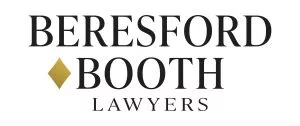- within Employment and HR topic(s)
- with Senior Company Executives, HR and Inhouse Counsel
- in United States
- with readers working within the Technology and Law Firm industries
On September 4, 2025, the Washington Supreme Court issued a major decision in Branson v. Washington Fine Wine & Spirits, LLC, clarifying employers' obligations under the state's Equal Pay and Opportunities Act (EPOA). The case addressed a simple but critical question: Who qualifies as a "job applicant" entitled to sue when an employer fails to include required pay and benefits information in a job posting?
The Court's answer: any person who applies to a job posting is a "job applicant." Importantly, applicants do not need to prove they were "bona fide" or "good faith" seekers of employment. In other words, whether someone applied with genuine intent to accept the job is irrelevant. If an applicant submitted an application in response to a posting that lacked the required wage and benefit information, they may pursue remedies under the law.
For Washington businesses with 15 or more employees, this holding has significant implications. Since 2023, the EPOA has required job postings to include the wage scale or salary range and a general description of benefits. If this information is missing, applicants can seek damages, including statutory damages of $5,000 per violation, even if they cannot prove actual financial harm. That means businesses could face substantial liability, particularly in class action lawsuits, if postings are not compliant.
There is some relief. Beginning July 2025, amendments to the statute allow employers five business days to correct a noncompliant posting once notified, before damages or penalties may be imposed. This "cure period" is an important safety net, but prevention is still the best defense.
What does this mean for your business?
- Always include the wage or salary range and benefits in every job posting, whether on your own website or third-party sites like Indeed or LinkedIn.
- Audit your postings regularly, errors on third-party sites still create liability.
- Act quickly if notified of a violation. The law now gives you a short window to fix mistakes before penalties apply.
This ruling reinforces the Legislature's intent: pay transparency is not optional in Washington. For business owners, the key takeaway is simple, compliance must be consistent and proactive.
The content of this article is intended to provide a general guide to the subject matter. Specialist advice should be sought about your specific circumstances.


